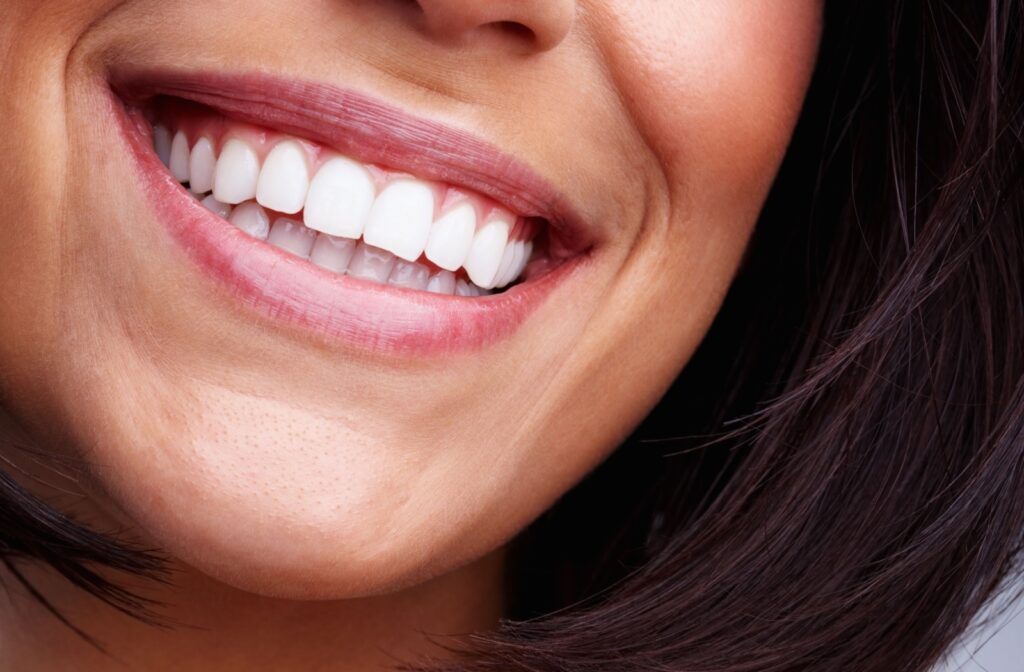When you think about the human body, you probably picture your skeleton—a strong framework of 206 bones. Teeth, however, often get lumped into the bone category because they share some common features: they’re hard, white, and essential to our overall health.
But are teeth really bones? The quick answer is no. Although teeth and bones have similarities, they are quite different in structure, composition, and function. By understanding the differences, you can care for your smile more effectively.
How Teeth Differ from Bones
At first glance, teeth and bones may seem alike. Both provide strength and rigidity, and both contain calcium. But that’s where the similarities mostly end.
Composition
Bones are living, dynamic tissues made mostly of collagen—a protein that provides flexibility—and calcium phosphate, which adds strength. Bones also have blood vessels running through them, allowing them to heal and regenerate after injury. Inside a bone, bone marrow produces red and white blood cells that keep the body healthy.
Teeth, however, are quite different. They are made of several layers:
- Enamel: The outer shell of a tooth consists of enamel, which is the hardest substance in the human body. Enamel is incredibly durable but contains no living cells.
- Dentin: Beneath the enamel lies dentin, a dense, bone-like material that forms the bulk of the tooth.
- Pulp: At the center is the pulp, which houses nerves and blood vessels, making the tooth a living part of the body in this sense.
Structure
Bones are porous and lightweight, designed to support body movement and protect organs. Their porous nature makes them flexible and allows healing after fractures. Teeth, on the other hand, are very dense and rigid. Because they don’t regenerate naturally, dental damage requires professional treatment to repair.
Why Teeth Aren’t Considered Bones
Despite some shared characteristics, teeth are classified separately from bones due to several fundamental differences:
- No bone marrow: Unlike bones, teeth don’t contain marrow, so they don’t produce blood cells.
- Healing ability: Bones can heal fractures on their own. Teeth cannot regenerate or heal damage like chips or cavities, which is why dental restorations like fillings and crowns are necessary.
- Enamel’s unique properties: The enamel coating on teeth is stronger than any material found in bones. This hardness helps teeth endure the forces of chewing but also makes enamel brittle and prone to cracking if stressed.
The Role Teeth Play in Our Body
Teeth serve very different purposes than bones. While bones provide structural support and protect internal organs, teeth are designed primarily for breaking down food, aiding digestion, and helping us speak clearly. Teeth also help maintain the shape of our face and contribute significantly to our appearance and self-confidence.

Caring for Teeth vs. Bones
Keeping both bones and teeth healthy is crucial, but their care needs differ.
- Bone health: Strong bones require a balanced diet rich in calcium and vitamin D, and regular weight-bearing exercise. These habits maintain bone density and reduce the risk of osteoporosis.
- Tooth health: Oral health focuses heavily on hygiene and preventing decay. This includes:
- Brushing twice daily with fluoride toothpaste.
- Flossing to remove plaque between teeth.
- Regular dental check-ups for professional cleanings and early problem detection.
- Limiting sugary and acidic foods that can erode enamel.
- Using fluoride treatments to strengthen enamel and reduce decay risk.
Common Misconceptions About Teeth
Many people believe that drinking milk or eating calcium-rich foods will directly strengthen their adult teeth. While calcium is essential for overall health and especially important during childhood tooth development, it doesn’t directly rebuild tooth enamel once it’s been worn away.
However, adult teeth can remineralize to some extent, especially in the early stages of enamel erosion. This process happens through the minerals in saliva, particularly calcium and phosphate, often aided by fluoride. As long as there are no cavities yet, weakened enamel can be strengthened through good oral hygiene and fluoride exposure.
That’s why protecting your enamel and supporting natural remineralization through daily brushing, flossing, fluoride use, and regular dental checkups is so important.
Why Regular Dental Visits Matter
Routine dental exams catch cavities, gum disease, and other issues early, making treatment simpler and more effective. Regular professional cleanings also help remove plaque and tartar that daily brushing can’t tackle alone.
A Fun Fact About Teeth & Bones
Did you know that, even though teeth aren’t bones, they’re the only part of the human body that can’t heal themselves? This makes taking care of your teeth extra important—once enamel is gone, it’s gone for good!
Book a Dental Appointment to Care for Your Teeth
If you’ve ever wondered about the difference between teeth and bones, now you know: teeth are not bones, but unique and fascinating structures essential to your health and quality of life. By understanding what makes teeth special, you can better appreciate the importance of caring for them properly.
If you’re looking for expert advice on keeping your teeth strong and healthy or have questions about dental care, the team at Marks Dentistry in Etobicoke, ON, is here to help. Book an appointment today to experience professional, friendly care tailored to your smile’s unique needs!




